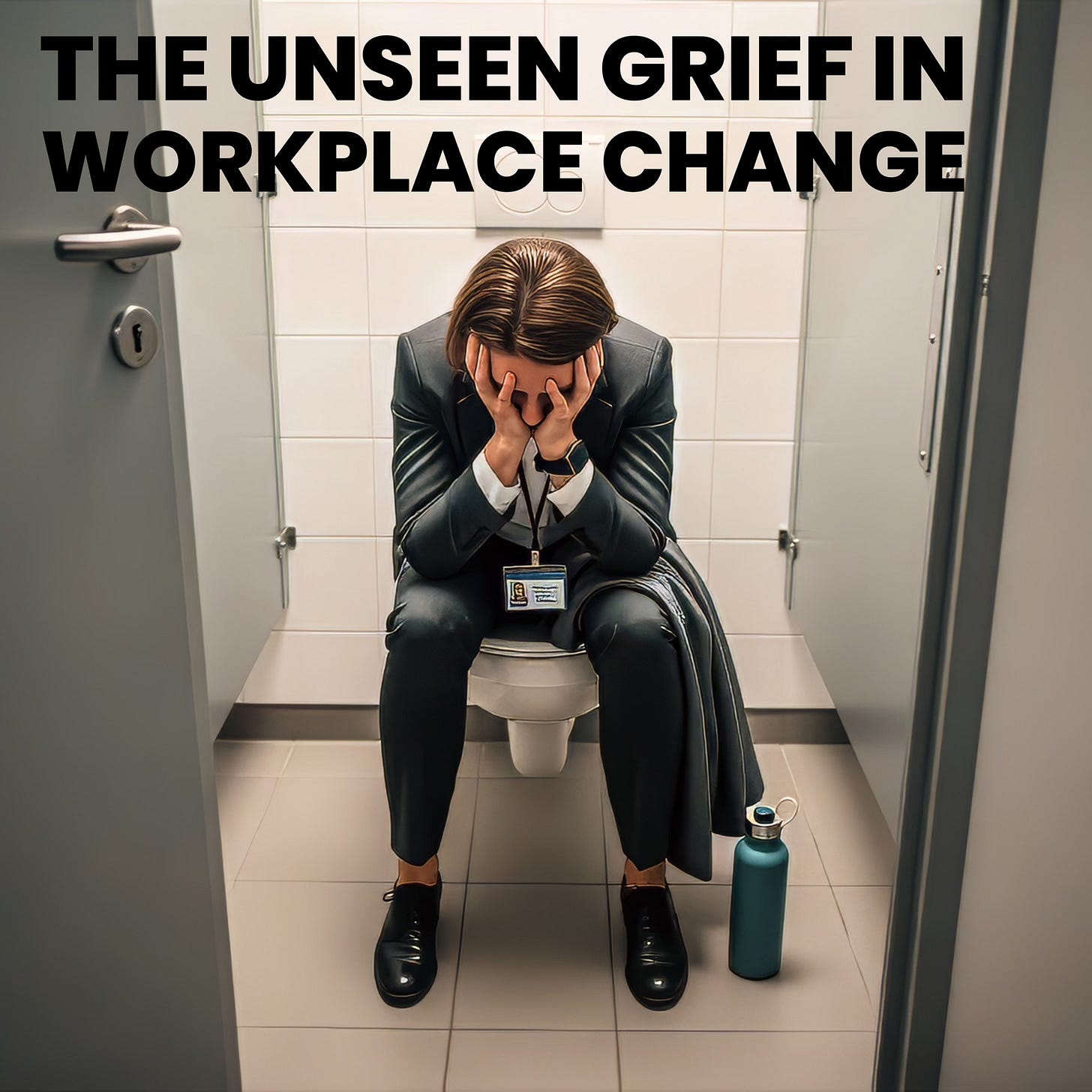The Unseen Grief in Workplace Change
Workplace change always looks so tidy on paper. A reorg announcement lands in your inbox with color-coded boxes and arrows pointing confidently toward the future. Leadership says things like “alignment” and “efficiency,” and everyone nods because that’s what you do.
But inside? It feels a lot messier.
There’s a specific kind of quiet that settles into a team after a big shift. The kind where everyone’s still answering emails, still hopping into meetings, but there’s a heaviness in the air you can’t quite name. It’s like walking into a room where a conversation just ended—something’s changed, and no one wants to say it out loud yet.
People grieve in that space.
Not the falling-to-the-floor kind of grief, but the softer version: the ache of losing a routine that used to ground you, the sting of seeing a familiar name disappear from the org chart, the uneasy feeling of “Who are we now?” that hangs around long after the dust settles.
I’ve lived through big loss, the kind that rearranges every corner of your life, and one thing I’ve learned is this: grief doesn’t only show up when someone dies. It shows up any time the world you knew is suddenly gone. Even if that world involved status meetings and shared Slack channels.
In the workplace, grief looks like the grayed-out name in a group chat. It’s the silence in a Monday standup when someone asks, “So…who handles this now?” It’s missing the way your old team used to laugh at something that wasn’t really funny, but it lightened the day anyway.
And here’s the thing most companies skip right over: humans can’t adopt a new vision just because it looks good in a deck. You can’t bullet-point your way through loss. People need time—real time—to adjust, to find their footing, to rebuild trust in whatever the “future state” is supposed to be.
The unseen grief in workplace change isn’t an obstacle to overcome. It’s a signal that people cared about what came before. They built something together. They found meaning in it.
When leaders acknowledge that—when they say, “Yeah, this is hard,” instead of racing straight to the upbeat close—it changes everything. People exhale. They feel human again. And ironically, that’s what helps them move forward.
Because grief isn’t the enemy of progress. It’s part of the process.
And the sooner we make space for that, the easier it becomes to grow into whatever comes next.
Sign up for my newsletter to get this kind of uplifting content delivered to your inbox…and you’ll be the first to know what I’m cooking up for 2026. It’s big!


